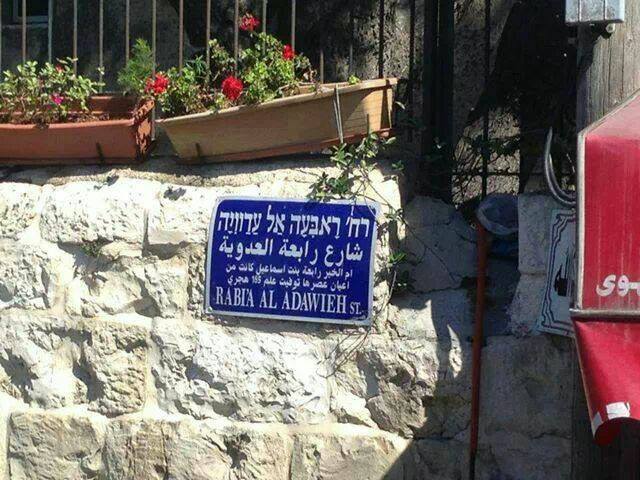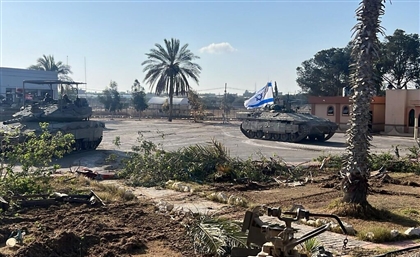What's in a Name?
Anam Sufi lambasts Israel and Western states for praising what can only be called weak attempts at diplomacy in the Palestine-Israeli peace process.

Although the creation of Israel was relatively recent in the narrative of history, the Palestine-Israel conflict has developed into a convoluted blend that feverously brings matters of culture, geography, religion, ethnicity, politics, and history to the forefront. Against this backdrop, literature of the region has been awarded the arduous task of dichotomising each facet into two separate accounts; the Palestinian/Pan-Arab perspective, and the Israeli/Western states perspective. While I could indulge in an endless endeavor to address a library of sub-conflicts and matters of contention, this article strives to highlight the kaleidoscope of angles that should be noted when dealing with but a pixel in the painted account of Palestinian-Israeli relations.
The Facebook page, “Egyptian Community in Israel” reported on the 26th of October, that “Israeli authorities had agreed to name a street in Jerusalem after Rabai’ah al-Adawiyah,” as a show of good-will towards the recent clashes that took place in Cairo’s Rabi’ah al Adawiyah square, an epicentre for supporters of ousted president, Mohamed Morsi. This being said, alternate Palestinian sources claim that “Rabi’ah al-Adawiyah street in Jerusalem has had the name for 60 years, in remembrance of the 8th-century Sufi saint, Rabi’ah al-Adawiyah.” Whatever the reference tied to the name, like much of the Arab community at large, I tend to take signs of “compromise” from Israeli authorities, with a pinch of salt. What are the implications of this move in the context of religion, history, and the road to diplomacy?
Israel has conducted a string of flagrant actions that dismiss the teachings of international law, particularly in its aggressive attempt to raze Palestinian influence, culture, and presence, and replace it with a picture more in tune with Israeli nationhood. The arguably fatal cocktail of Palestinian absence from the land divide outlined in UN Resolution 181, assertive Israeli resettlement policies, the equally aggressive attitude of Israel towards Palestinian repatriation plans, and a largely crippled international regulation system has led to a condition whereby even a two-state solution seems a bleak prospect for the near future.
The protracted Palestinian refugee crisis in neighbouring countries has given rise to a situation where agencies such as UNRWA play an integral role in preserving the Palestinian cause and virtual statehood. Salient to this effort is the education system that strives to teach pupils in Palestinian refugee communities the geography of what Palestine looked like before its dissection. This involves the teaching and remembering of names of streets and districts; a strong response to Israeli forces’ “name-changing” and resettlement endeavours.
To call the recent resurgence of Palestinian-Israeli peace talks a “current” event would be a bit ignorant. After all, the region has been engaging in “peace talks” for the greater part of half a century now. But the political climate today indicates that the US has redoubled its “efforts” to bring both parties to the table, in hopes of agreeing on a two-state solution. Israel’s agreement to rename (or acknowledge) a street in Jerusalem “Rabi’ah al Adawiyah” in an attempt to display their dedication to diplomacy is yet another mockery in a myriad of violations that it has conducted against Palestine. One could argue that cynicism at every step is not the way to move forward, but in light of the bombastic rhetoric adopted by internationally acclaimed news providers (ahem, Washington Post) to place Israel on a pedestal of peace, I beg to differ.
Lauding Israel for renaming a street in Jerusalem to something more aligned with Palestinian culture would demand a preconceived acceptance that the state of Israel has demonstrated similar flexibility and amiability in other, more significant areas. To put it boldly, this is not the case. Notorious for bringing a grenade to a gunfight, Israel has repeatedly stepped over international regulations, violently trying to rid the land of Palestinian presence. If we are at a point in time where Palestinian refugees find it a priority to learn the names of streets that have since then been demolished and renamed, there is something fundamentally wrong with the adulation of Israeli forces agreeing to adopt a single name for a single street. For this to be celebrated by Western states as a representation of Israel’s ever-expanding moral righteousness, is quite frankly on par with spitting in the face of justice and diplomacy.
- Previous Article I Got Banged!
- Next Article Nomades Land
Trending This Week
-
May 13, 2024
-
May 14, 2024
























